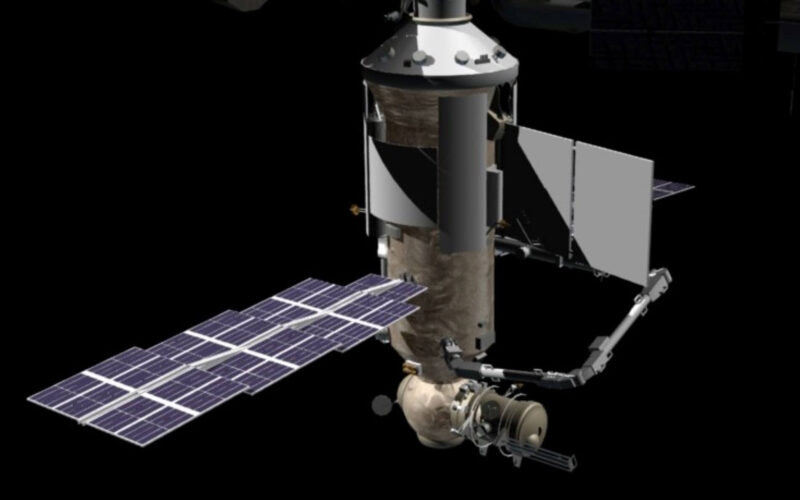Nauka was launched on July 21, 2021, and intended to dock with the International Space Station on July 29. However, after the spacecraft was put into the initial orbit, its main engine malfunctioned due to a computer glitch, Russian media reports.
At that position Nauka had only approximately 30 stable orbits before – if no course corrections were taken – risking falling back to Earth. Roscosmos’ scientists initiated a series of tests trying to find the solution to the problem, and managed to perform necessary course corrections, putting the module into a safer orbit.
They still have to find a way to bring the main engine online though, as without it the costly segment will not be able to reach the ISS and dock with it.
#Nauka update: Mission control plans new corrections of the module’s orbit today to reduce a potentially fatal orbital plane drift, works to bring main engines back online… so here’s my newly minted & hopeful pic of Nauka approaching #ISS. DETAILS: https://t.co/KZE3WlnXSu pic.twitter.com/tvbSu5fqzt
— Anatoly Zak (@RussianSpaceWeb) July 23, 2021
Nauka is supposed to be the last module of the ISS, completing the multinational space laboratory before its probable retirement in the late-2020s. Initially planned to launch in 2007, and in the works since the 1990s, Nauka was beset by all kinds of problems through the years.
The module is intended to supply the ISS with an auxiliary power station, new docking unit, and become the station’s most modern laboratory.
Along with Nauka, the European Robotic Arm manipulator was launched, designed to serve as the new main manipulator in the Russian part of the ISS. The arm is able to move multi-tonne payloads along the station’s surface and provide help to the crew on their spacewalks.
In early 2021 Russia planned to turn Nauka into the core stage of its new national space station, ROSS. The plan was abandoned, leading to the module’s launch on July 21.

